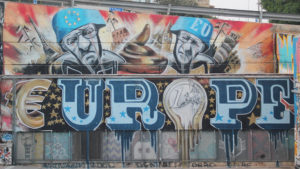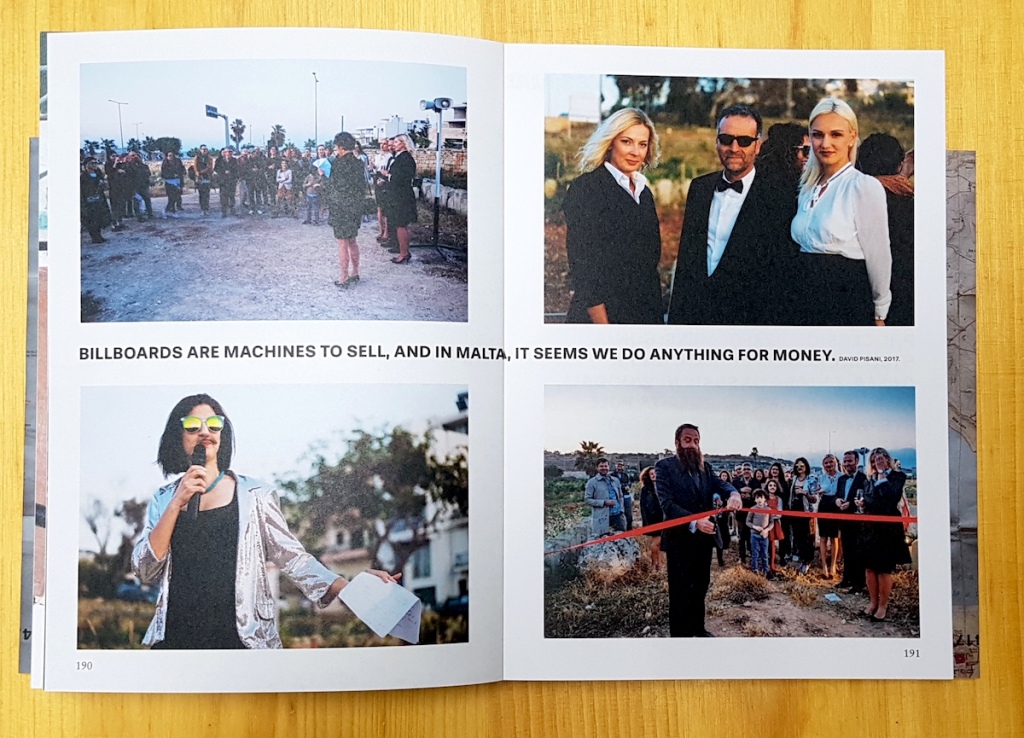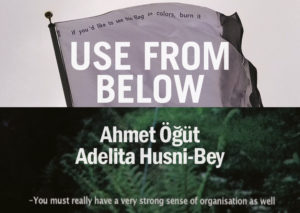Our main focus of recent months has been fixed on plight of beloved droog and long term collaborator Alexei Blinov. His death just last week of organ failure followed six months of struggle with pancreas and liver cancer, chemotherapy and health services.
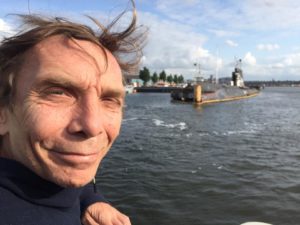
A fabulous circle of friends enveloped him with love and support throughout, not least in respect of his creative drive and fierce intellect, but for the huge sense of fun and selflessness he encouraged in all who knew him. A very special friend indeed. A public Transition Celebration is planned for Sunday 15th December at one of Alexei’s favourite bars, Strongroom in Shoreditch London 3-10pm, please come early and celebrate his life and times.. together! A sensational gathering of friends and family shared in the unique celebration of his life and times. It centred around this wonderfully apt and beautifully crafted plasma capsule which scanned and smoothed Alexei’s passing on and up to next phase of further exploration and infinite dreaming. See the growing collection of Alexei images and video clips in this shared album.
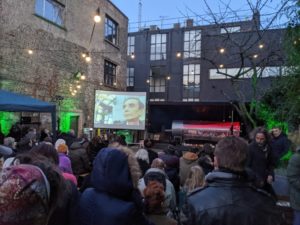
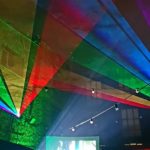
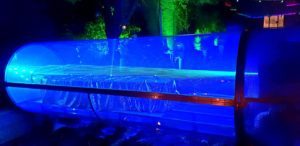
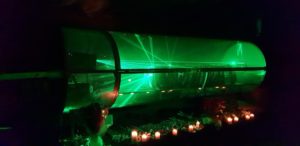
Alexei Blinov (10 July 1964 – 26 November 2019) was a London-based electronic engineer and new media artist working out of Raylab in Haggerston. As founder of experimental new media organisation “Raylab” he has collaborated with a number of creative artists including Jamie Reid.
He was trained as a doctor before moving to the UK. In the early 1990s he specialised in large scale high quality laser projections. Since the late 1990s he has produced a wide variety of interactive audio-visual installations. Over the past few years, he has been the creative force behind many interactive audio-visual art projects in the UK.
Between 1993 and 1996 he worked extensively in the Netherlands, creating laser projections for scientific events, music and arts festivals and for dance companies. Since 1997 he has worked mainly in the UK creating interactive audio-visual installations at a number of important art galleries including the ICA, London and the Barbican Art Centre, London. Collaborations include Ciron Edwards.
From 2006-2016 he led the technical development for feature film Dau – life and times of physicist Lev Landau, on set in the Ukrainian border city Kharkov where he revisited many period experiments and engineered his own to feature in the film. The movie is one of Russia’s largest and most controversial cinematic projects to date.
He engaged with new media projects based on wireless networking such as WiFi, and was a well known and respected I/O specialist with a passion for high voltage and radio frequency experimentation. Blinov researched electro stimulation of neural feedback and blockchain resourcing.
He has exhibited a selection of these HT experiments including the ‘Hairpin Circuit’ at Moscow University. A set of spectacular arctic ICE core holographic images were recently exhibited in St Petersburg.
Alongside Ilze Black and Martin Howse, he was a member of TAKE2030, a brave new media society that operated in parallel net media scheme. The London based collective produced public art projects, shifting social network missions into hypermedia playing fields. Past projects include RichAir2030, UK, EU (2003-2004) and Lets do Lunch, London (2005). Blinov had deep ties with the Open Wireless Network community between Moscow, London and Berlin, collaborating with Jamie Reid, Empress Stah, Shu Lea Cheang, Nancy Mauro-Flude and many others.
He died on 26 November 2019 following complications from pancreatic cancer.

